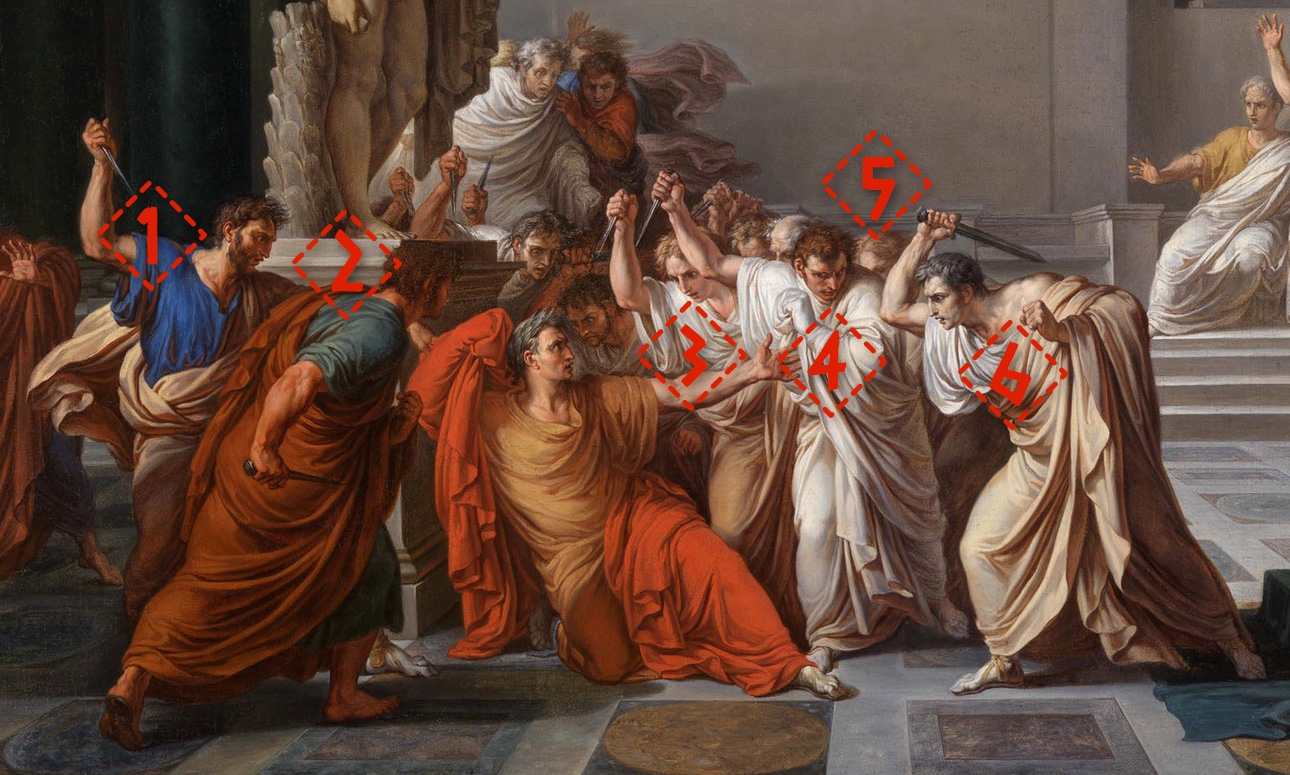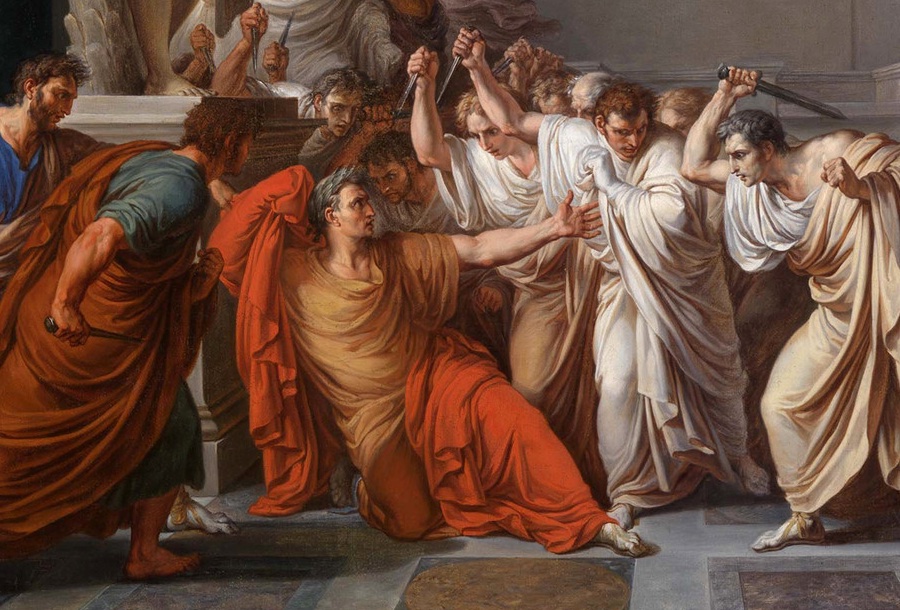The who, what and where of one of histories most infamous assassinations
When it happened
In 44 BCE, Caesar planned a major expedition against Parthia to avenge Crassus and would be away for several years. Three days before he was due to leave, the assassins struck. It was 15 March – or the Ides, one of the three named days in each Roman month.
Where it happened
Caesar was killed at a meeting of the Senate. The Senate House had been burned down in political rioting eight years earlier and Caesar’s grand replacement was not yet finished. Purely by chance, the Senate convened in one of the temples attached to Pompey’s theatre.
Who was involved?

1. Marcus Junius Brutus
85-42 BCE
Alarmed by Caesar’s growing power after being appointed dictator, Brutus was persuaded to join the conspirators. Upon realising that Brutus was one of the attackers, Caesar is said to have covered his face to preserve his dignity.
2. Gaius Cassius Longinus
85-42 BCE
Said to be jealous of the favour Caesar showed to Brutus, Cassius is thought to have been the mastermind behind the assassination plot. When the time came, Cassius egged on his fellow conspirators and stabbed Caesar in the chest.
3. Decimus Brutus
85-43 BCE
A distant cousin of Julius Caesar, Brutus was a general and politician whose job on the final day was to convince a sick Caesar to attend the Senate. He ensured Caesar would show up, even if it was just to postpone the meeting.
4. Servilius Casca
84-42 BCE
Casca joined the conspirators alongside his brother, Gaius, who was a close friend of Caesar’s. In fact, it was Casca who struck the first blow during the assassination, attacking Caesar from behind his chair while he was distracted.
5. Gaius Trebonius
92-43 BCE
Once a trusted associate of Caesar, Gaius Trebonius intercepted Mark Antony outside the senate building as he raced to warn Caesar of the plot, and engaged him in conversation. This allowed the attackers to finish the job.
6. Tillius Cimber
85-42 BCE
Upon his arrival at the Senate, Caesar was presented with a petition by Cimber to pardon his exiled brother. As the other senators gathered round, Cimber grabbed Caesar’s clothing to distract him.
